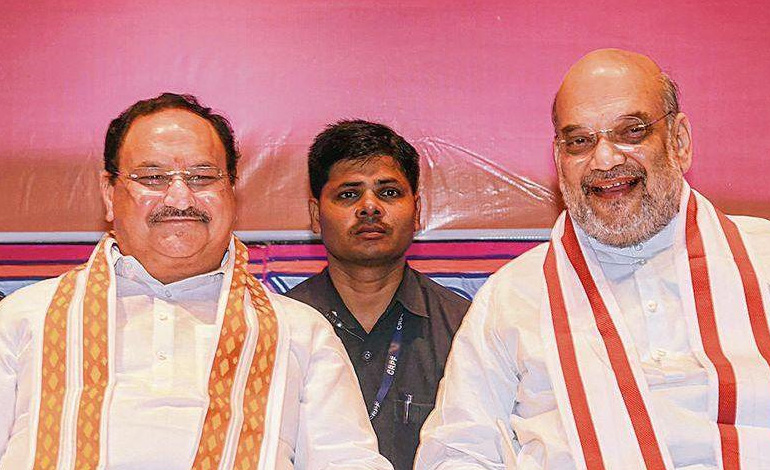In a surprising turn of events, several prominent regional party leaders have recently expressed their intention to align with the Bharatiya Janata Party (BJP), citing the strategic benefits and potential for a brighter future. This development marks a significant shift in the political landscape, as these leaders recognize the growing influence of the BJP and the opportunities it presents.
Among the leaders who have openly acknowledged their willingness to join forces with the BJP is Mr. Ravi Kumar, the chief of the Progressive Party of India (PPI). In a press conference held yesterday, Kumar stated, “After careful consideration and evaluation of the current political climate, I believe that our party’s goals align well with the vision of the BJP. By forging an alliance, we can work towards our shared objectives and contribute to the nation’s progress.”
The decision by Mr. Kumar has sparked discussions within political circles, with analysts speculating that the move could be a calculated step to strengthen the party’s position ahead of the upcoming elections. The BJP’s proven track record in successful coalition governments at the central and state levels has been a driving force behind these regional leaders’ decision to pursue an alliance.
Another prominent regional leader, Ms. Deepa Sharma, the founder of the United Regional Party (URP), has also expressed her interest in joining hands with the BJP. In a statement released earlier today, Sharma emphasized, “Our party believes in the principles of development, stability, and good governance. The BJP has demonstrated its commitment to these ideals, and by collaborating, we can bring about transformative changes in our respective states.”
Political analysts believe that these alignments will not only provide the BJP with a broader support base but also present an opportunity for regional parties to amplify their influence on national policy-making. This collaborative approach could lead to greater representation of regional concerns and aspirations at the national level, thereby fostering a more inclusive and balanced governance system.
The BJP, which has been focusing on expanding its presence beyond its traditional strongholds, has welcomed these overtures from regional parties. Party spokesperson, Mr. Anil Patel, expressed his optimism about the future collaborations, stating, “The BJP has always believed in coalition politics and recognizing the diversity of India’s political landscape. We are pleased to see regional leaders acknowledging our commitment to inclusive growth and development. Together, we can build a stronger and more prosperous India.”
While these alliances have sparked excitement within the political sphere, there are also those who remain cautious about the potential challenges that may arise from such partnerships. Critics argue that regional parties risk diluting their unique identities and ideological stances by aligning with a national party. However, supporters of this approach contend that in an increasingly competitive political environment, joining hands with the BJP offers regional parties a better chance of achieving their goals and making a lasting impact on national politics.
As the nation awaits further developments, the growing trend of regional parties seeking alliances with the BJP is likely to shape the dynamics of the upcoming elections. The evolving political landscape hints at a potential realignment of forces, with regional parties recognizing that their futures may indeed be served better through a strategic tie-up with the Bharatiya Janata Party.





